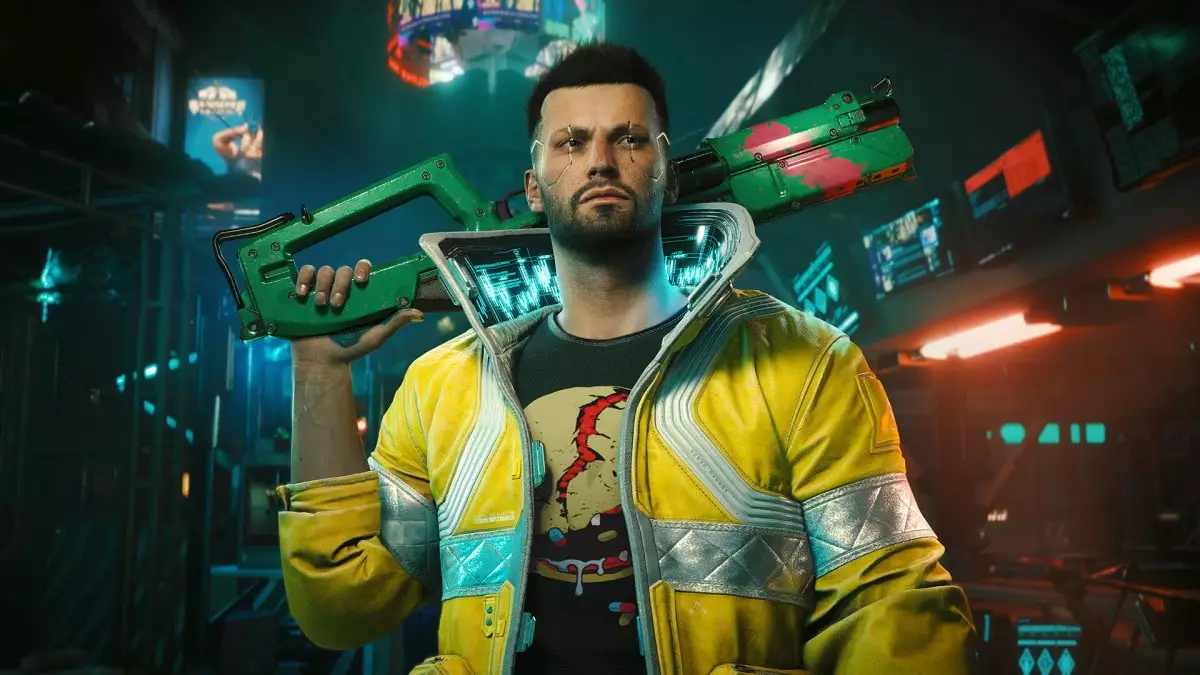In an era dominated by the relentless march of technology and a culture that craves more immersive experiences, the announcement of Cyberpunk 2’s pre-production phase is both a thrilling development and a cause for apprehension. CD Projekt has confirmed that this highly anticipated sequel to Cyberpunk 2077 has emerged from the fog of its earlier codename, “Project Orion,” stepping into the spotlight as Cyberpunk 2. The excitement is palpable, yet the weight of expectations looms heavily on the shoulders of a studio that has historically been both celebrated and scorned for its ambitious worlds and narratives.
The transition from the conceptual phase to pre-production indicates a significant milestone, but it also raises questions about CD Projekt’s true capacity for delivering a sequel that meets the lofty ideals set by its predecessor. The studio, known for pushing the envelope in game design and storytelling, now faces the daunting task of living up to both its audience’s expectations and its own storied legacy. What will this mean for the quality, depth, and innovation within Cyberpunk 2? That question lingers as we await the game’s eventual release—whenever that may be.
Development Dynamics and Team Growth
The new development figures showcase an increase in the team dedicated to Cyberpunk 2, growing from 84 to 96 personnel over a span of mere months. While this might seem promising, one mustn’t overlook the reality that talent acquisition in the gaming industry does not guarantee success. CD Projekt still has over 730 employees working across various projects, with a substantial focus on The Witcher 4. It raises a significant concern: is there enough strategic focus being directed towards Cyberpunk 2, or is it at risk of becoming a secondary priority?
To create a truly captivating sequel, CD Projekt Red must ensure that Cyberpunk 2 does not become a mere afterthought while the development team is stretched across multiple ambitious undertakings. Are the lessons learned from the tumultuous launch of Cyberpunk 2077 being thoroughly examined, or will history repeat itself? A careful balance of resources and creative energy will be essential in crafting a world that engages players in ways that feel fresh and compelling rather than derivative.
A New City, New Challenges
Mike Pondsmith’s tantalizing mention of a second city—described as “Chicago gone wrong”—opens up intriguing possibilities for Cyberpunk 2. As someone who has profound roots in the original Cyberpunk universe, his input is invaluable. Yet, I can’t help but feel a twinge of skepticism about whether exploring a new city will elevate the gaming experience or if it will dilute the identity that the original Night City so vividly encapsulated.
A new setting necessitates not only a rich narrative and world-building but also a meticulous integration of gameplay mechanics. Is CD Projekt prepared to tackle the complexities that arise when introducing a large, sprawling new environment? The potential to expand the lore and social commentary embedded in the Cyberpunk franchise exists, but it requires an earnest commitment to innovation rather than simply recycling previous successes.
Sales Figures and Industry Implications
Recent reports indicate that sales of the Phantom Liberty expansion have exceeded 10 million copies, a figure that might seem incredibly encouraging upon first glance. Yet, it also highlights an impending concern: will the allure of Cyberpunk 2 rest solely upon the skeleton of its predecessor’s achievements, or will it endeavor to carve out its own distinct identity in a crowded market?
The snapshot of CD Projekt’s financial success can easily create a false sense of security, masking underlying challenges that lie ahead. The unveiling of the Ultimate Edition for the Nintendo Switch 2 hints at an attempt to invigorate interest in the franchise, but one can’t ignore the risk that this strategy could lead to a relationship with the audience based primarily on nostalgia rather than genuine engagement.
Uncharted Territory Ahead
As CD Projekt forges ahead into this uncharted territory with Cyberpunk 2, the studio must tread carefully. There is a fragile balance between ambition and overreach, and they will need to ensure that the sequel resonates with an audience that is both eager and wary. Without genuine innovation and the willingness to take artistic risks—while not losing sight of the essence of what made the first game remarkable—Cyberpunk 2 runs the risk of relegating itself to mere legend rather than carving its own extraordinary niche in the gaming landscape.
In the realm of center-wing liberalism that often celebrates progress and innovation, it is critical for creators to push boundaries while also being self-reflective. As Cyberpunk 2 inches closer to reality, the question lingers—will it redefine the narrative landscape, or will it falter under the weight of expectation? Only time will tell, and the anticipation for that answer is both a thrill and a worry for the gaming community.

Leave a Reply